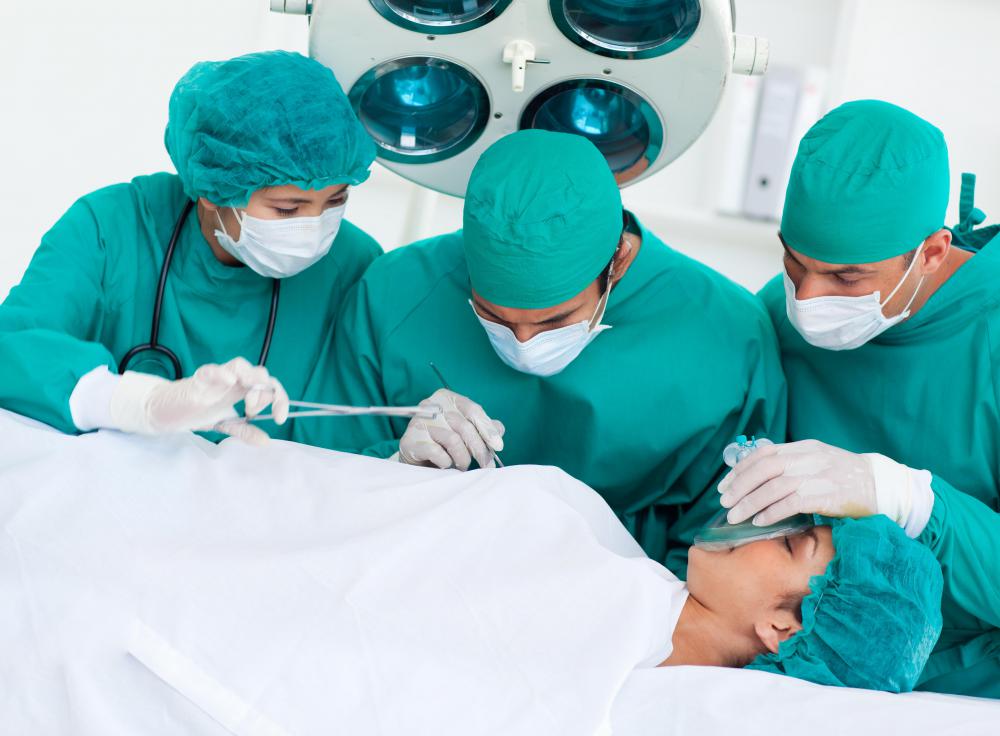At WiseGEEK, we're committed to delivering accurate, trustworthy information. Our expert-authored content is rigorously fact-checked and sourced from credible authorities. Discover how we uphold the highest standards in providing you with reliable knowledge.
What Is Malignant Hypothermia?
Malignant Hypothermia (MH) is a common misspelling of malignant hyperthermia, a a potentially fatal health crisis that can arise when a surgical patient with a certain type of genetic abnormality is prepared for surgery with a particular kind of anesthetic. The use of the wrong class of anesthetic may trigger a life threatening chemical reaction in the body because of the genetic defect. MH can also occur if, unknown to medical providers, a patient is suffering from muscular dystrophy, as the onset of MH begins with a reaction in the skeletal muscles. Susceptibility to MH is genetically inheritable. Preventive measures can be taken if treatment providers are aware of any history of the MH in the patient or her family.
A gene mutation in MH susceptible patients causes the presence of abnormal proteins in the muscle cells of the body. Although generally of no medical concern in everyday activities, the introduction of certain anesthetics into the skeletal muscle tissue results in a release of extremely high levels of calcium in the muscle cells. This triggers sustained muscle contractions, causing the muscle cells to quickly die. The resulting release of potassium into the bloodstream when the cells die causes rapid damage to the body’s organ systems, including the brain, and possibly fatal organ failure.

There are more than 80 genetic defects associated with malignant hyperthermia. It has been determined that susceptibility to MH is inherited in what is termed an autosomal dominance pattern. Children and siblings of an MH susceptible person would thus have a 50% chance of inheriting a gene defect that would make them also MH susceptible. Estimates as to the incidence of MH range from as low as one in 65,000 administrations of anesthetics to as high as one in 5,000. In the US, Midwest states are reported to have a higher incidence of MH cases.

The specific anesthetics that trigger malignant hyperthermia have been identified. They are a class of gaseous anesthetics that are inhaled prior to surgery. They include all the depolarizing muscle relaxants, most particularly sucinycholine, known as Anectine, a paralyzing agent. Non-polarizing anesthetics such as nitrous oxide and certain narcotics and barbiturates can be used as an alternative to the anesthetics that pose an MH threat. It is important that medical providers know in advance of any possibility a patient is MH susceptible, so that preventive measures can be taken.

An exact incidence for malignant hyperthermia is unknown. In the US, the Malignant Hyperthermia Association of the US (MHAUS) recommends that anyone with an MH family history inform the anesthesiologist of this prior to any surgery. MH susceptibility can also be registered with the North American Registry of MHAUS.
AS FEATURED ON:
AS FEATURED ON:













Discuss this Article
Post your comments